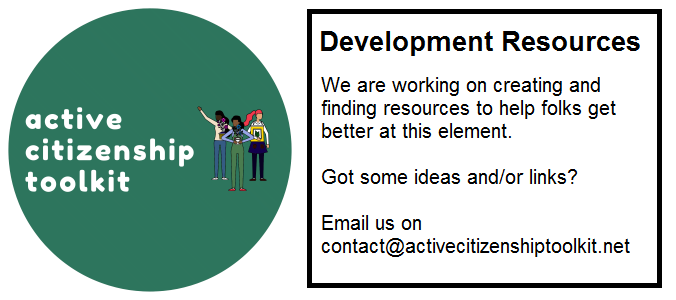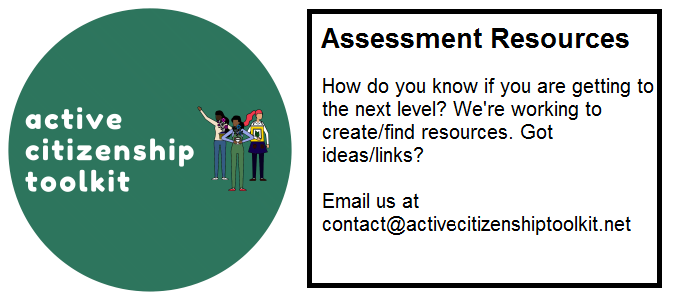Element Descriptor
Consultations are (mostly) the rubber stamp ritual undertaken by our lords and masters to try and find some legitimacy for what they planned to do all along. Knowing when and how to engage, and why, is a crucial skill (ioho) for community groups. Not having it leads to wasted time, effort and morale.
Level descriptors
| Novice | Practitioner | Expert | Ninja |
|---|---|---|---|
| You can reply to a consultation that has been (deliberately) designed to be opaque and intimidating, without losing time, sleep or marbles, and without falling into their leading-questions-traps. | You can work with others to provide quick detailed replies to a consultation which show its underpinning assumptions as fallacious and the whole thing as a perverse game of the powers-that-be looking for some fig leafs. | No matter the deadline, no matter the constraints of the format and the leading questions, you’re able to cut through the crap and give clear, concise answers (albeit ones inconvenient to those pushing in a certain direction); You know exactly how much effort to give, and for what result… | Your replies to consultations often mysteriously go missing, but fortunately you’ve kept copies and posted them online for all to see. Civil servants and politicians lose credibility and morale when they try to ignore you or smear you as “passionate” or a NIMBY or a BANANA. |
Element Overview Essay
This is a draft. If something doesn’t make sense, or you see typos, or if you have further ideas, please email us on contact@activecitizenshiptoolkit.net
The reasons that people do these badly is that they can get lost in the details and they fail to understand the larger political purposes, for any given consultation at either a local government or national level, consultations are there as rubber stamp exercises, so the government can claim some shred of democratic legitimacy. “We’ve listened” for a decision that they want to make, because it suits their political objectives, their ideological objectives, or the needs of the big companies that are making large donations to the ongoing work of the party and its reelection campaign. And I should also say, unions (can) have a very large influence over Labour Party policy.
The consequences of doing consultations badly, can be quite serious. You can waste a lot of time and energy of yourself and your allies, time and energy that could be spent on better things. And crucially, unless you are able to name what’s going on, you end up strengthening the hand of your opponents.
Because if you do get 100 people to respond to the consultation, the government can say, “Oh, this is a broad range in consultation with 100 people from different walks of life.” And then of course, it kind of categorised all of their strenuous objections as, quote, neutral unquote, as Manchester City Council infamously did with the Hyde Road widening consultation.
So, fixes – know what’s going on. Figure out what your rationale for participating in the consultation is. Name what is going on, learn some new skills and try and build some new alliances on the way but never have the delusion that a consultation is a dialogue between our lords and masters and hoi polloi. Never let that delusion shape your actions,,,
Development Resources

Assessment Resources

